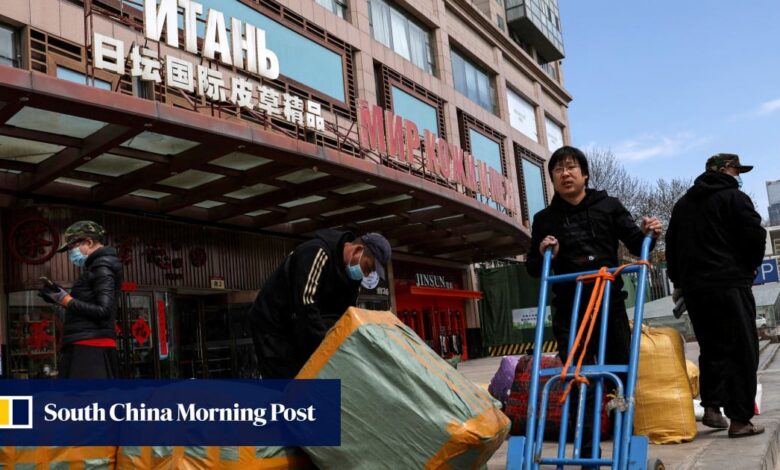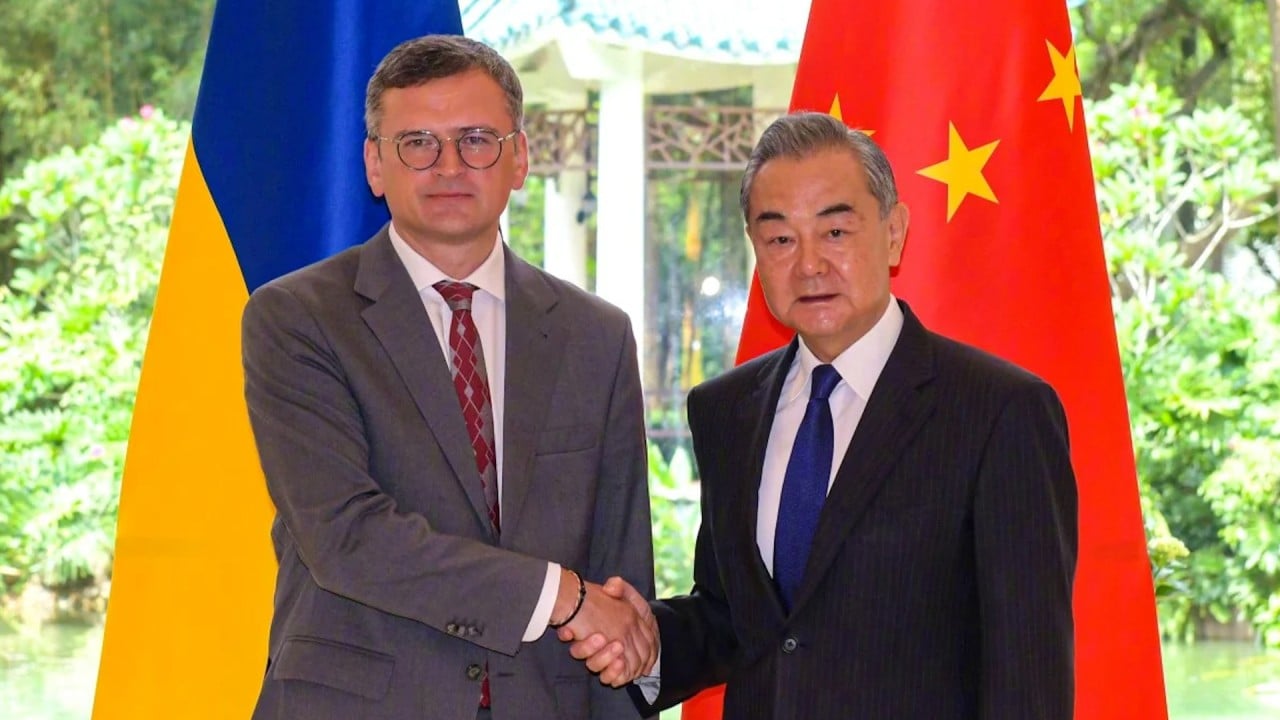China, Russia could skirt US sanctions with barter-trade deals that ‘break with tradition’

Some local governments in China have been leading discussions and making plans to begin barter trades with Russia amid media reports that the two countries will start using such goods-for-goods deals to circumvent Western sanctions.
Last month, officials from the northeastern Chinese province of Heilongjiang, which shares a border with Russia, met officials from the eastern province of Shandong in its port city Qingdao to “deepen understanding of barter trade and business experience” and to explore “new types of barter trades between China and Russia”.
At the meeting, officials from the Shandong Cross-border Barter Trade Association shared their experience with specific case studies in developing barter-trade schemes with Kenya, Nigeria and Uganda, according to a press release from the Shandong government on July 8.
The government of Lianyungang, a city in the eastern province of Jiangsu, was also working on measures following greater complications reported by Chinese financial institutions in settling payments in China-Russia trade, according to a June 21 statement by the city government.
“Trade with Russia has both difficulties and opportunities. We must seize the opportunity in a timely manner, strengthen research into new barter-trade formats, dare to innovate, and break with tradition,” Jiang Xingzhou, director of the Lianyungang Municipal Bureau of Commerce, was quoted as saying in the statement.
Jiang added that customs, tax and commerce coordination will be “strengthened” to help resolve payment delays facing Chinese exporters.
The recent discussions among local governments reflect rising problems facing Chinese exporters and financial institutions when it comes to trading with Russian entities.
Barter trading could allow Moscow and Beijing to circumvent payment issues, reduce the visibility that Western regulators have over their bilateral transactions, and limit currency risks.
Reuters reported on Friday that Russia and China might begin using barter-trading schemes, citing unnamed sources, with the two sides expecting deals involving agriculture as soon as this autumn, as Moscow and Beijing try to limit the use of banking systems monitored by the United States.
But Wang Zhiyi, founder of Shanghai-based research firm Cross-Border Finance Research Institute, said the development of barter trade would require new regulations for it to be effective.
“There is a lack of uniformity in regulatory and enforcement standards, and large-scale cross-border barter trade has not yet taken shape,” Wang told the Post.
Although China Customs has a regulatory code for barter trade, most barter trades taking place are still being recorded as an ordinary trade, Wang said.
And because barter trade has no cash flow, it could introduce a mismatch between the total amount of goods exported and cash flows for Chinese businesses, creating regulatory risks for these companies, he said.
Threats of expanded US sanctions in recent months have raised risks for banks in third countries, including China, when it comes to working with sanctioned Russian entities.
Russia has increasingly relied on China in trade following its invasion of Ukraine in 2022. From January to July this year, China-Russia trade value increased by 1.6 per cent, year on year, to US$136.67 billion, according to data from China Customs.
The US government has warned China not to aid Russia amid its Ukraine war efforts and has threatened to introduce additional sanctions, including measures targeting Chinese banks.
China already has a track record in barter trades with Iran, Africa and Southeast Asia, according to information posted online last week by the Henan provincial government. Exported goods mainly comprise vehicles and spare parts, building materials, IT products, medical surgical instruments, tyres and household appliances. Imports are mainly commodities, agricultural products and manganese ore and its concentrate.
Hainan province is China’s leader in barter trade, followed by Shandong and Hunan provinces, the post said.
Source link




